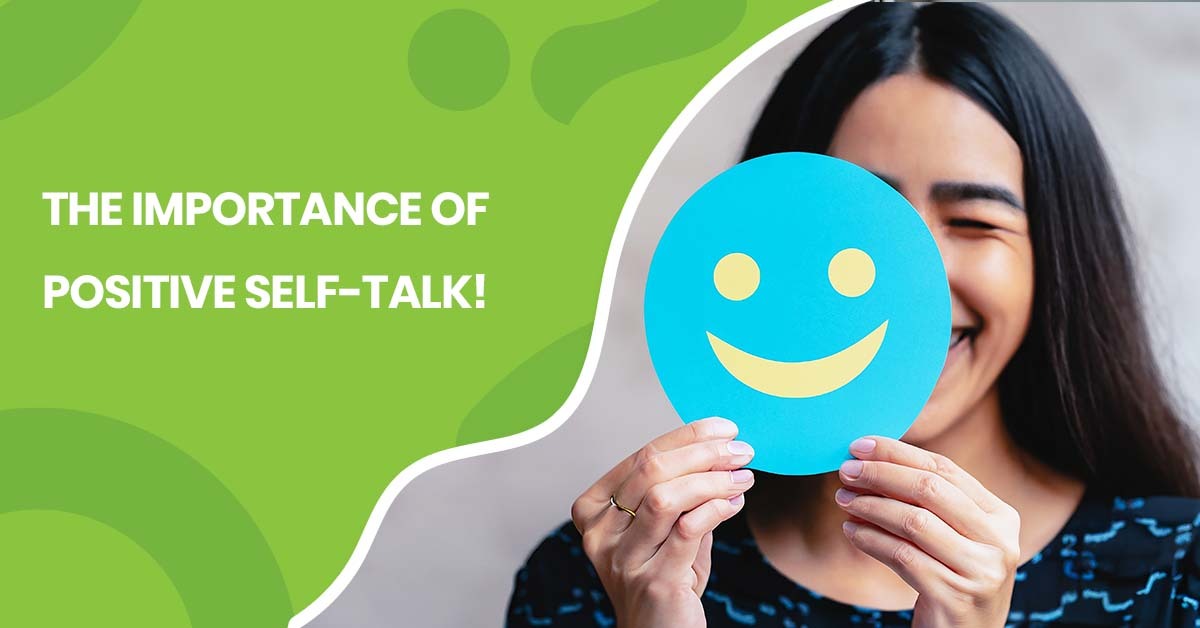What can practicing gratitude do for you? Developing a daily practice of gratitude can have a profound impact on your mental well-being. One effective way to incorporate gratitude into your routine is by keeping a gratitude journal. Take a few moments each day to jot down three things you’re grateful for, whether they are significant achievements or simple pleasures. By focusing on the positives, you can shift your mindset towards appreciation. Expressing your gratitude to others is another powerful way to nurture your mental health. Take the time to thank those who have made a positive impact on your life. Reach out to them with a heartfelt note, a phone call, or simply tell them in person how much you appreciate their presence. This act of appreciation not only strengthens your relationships but also fosters a sense of connection and gratitude within yourself. Mindfulness exercises can also help you cultivate gratitude. Engage in practices that bring your attention to the present moment, such as mindful eating or mindful walking. By noticing and appreciating the small details around you, you can develop a deeper sense of gratitude for the beauty and wonders of life. Even in challenging times, finding something to be grateful for can help shift your perspective. Look for the lessons learned, personal growth, or the support you received from loved ones. Recognizing the silver linings within adversity can help you navigate difficult situations with resilience and gratitude. Engaging in acts of kindness is another way to nurture gratitude within yourself. When you extend kindness to others without expecting anything in return, it not only benefits them but also brings you a sense of fulfillment and gratitude. Whether it’s offering assistance to a stranger, volunteering your time, or simply being there for someone who needs support, acts of kindness can generate a ripple effect of positivity. Remember: Cultivating gratitude is a habit that requires consistency and patience. Over time, as you make gratitude a regular part of your life, you’ll likely experience an improvement in your overall mental health. The practice of gratitude can help you shift your focus towards the positive aspects of life, fostering joy, resilience, and a greater sense of well-being. Additional Resources: https://www.mindful.org/an-introduction-to-mindful-gratitude/ https://www.helpguide.org/articles/mental-health/gratitude.htm https://www.happify.com/hd/the-science-behind-gratitude/ https://www.rd.com/article/how-to-practice-gratitude/ https://positivepsychology.com/gratitude-exercises/ About Us: https://www.stlmentalhealth.com is a St. Louis mental health therapy practice in Creve Coeur, Missouri. The practice has a team of mental health therapists who provide therapy and counseling services to kids, teens, adults, couples, and families. Pearlman & Associates specializes in stress, anxiety, depression, relationships, and other mental health related issues and concerns. The practice can be reached by phone at: 314-942-1147, by email at: bryan@stlmentalhealth.com or on the web at: https://www.stlmentalhealth.com/contact-us/. The office is located at: 655 Craig Road, Suite 300, St. Louis, MO 63141.

Mental Health Misconceptions and the Truth Behind Them Mental health misconceptions often prevent people from seeking the support they truly deserve. At Pearlman & Associates, we help individuals, couples, teens, and families across St. Louis and Creve Coeur, Missouri, understand mental health with clarity and compassion. Below, we break down common myths about mental health and explain why therapy and professional support can make a real difference in everyday life.

What Is Positive Self-Talk? Positive self-talk is the intentional practice of using supportive, encouraging, and constructive language in your inner dialogue. It helps shape how you think, feel, and respond to everyday situations. Instead of allowing negative or self-defeating thoughts to control your mindset, positive self-talk replaces them with empowering beliefs that build emotional strength and confidence.

Enhancing Your Mental Health in Today’s Fast-Paced World In today’s fast-paced and demanding world, it is easy to overlook the true significance of mental health. However, caring for your mental well-being is just as important as maintaining your physical health. Your mental health includes your emotional, psychological, and social well-being, and it directly impacts how you think, feel, and act every day.

Effective Coping Strategies for Mental Health in St. Louis, MO Life is filled with ups and downs, and at times, we all face challenges and stressors that can leave us feeling overwhelmed. Coping strategies are the techniques and behaviors we employ to manage and navigate these difficult situations. They empower us to face adversity, reduce stress, and maintain our overall well-being.
In today’s fast-paced and demanding world, stress has become a common experience for many people. It can have a significant impact on our mental health if not properly managed. Fortunately, there are effective strategies for handling stress that can promote better mental well-being. Here’s What To Do: Acknowledge Stressors First and foremost, it is crucial to recognize and acknowledge your stressors. Identifying the factors that trigger stress in your life allows you to take proactive measures to address them. Whether it’s work-related pressures, personal conflicts, or financial concerns, understanding the root causes of your stress empowers you to find appropriate solutions. Self-Care One of the most effective ways to handle stress is through self-care. Taking care of your physical, emotional, and mental well-being is essential for stress management. Engaging in regular exercise, practicing relaxation techniques such as deep breathing or meditation, and ensuring adequate sleep can significantly reduce stress levels. Additionally, engaging in activities you enjoy, such as hobbies or spending time with loved ones, can provide a much-needed break and help alleviate stress. Support System Building a support system is another valuable aspect of managing stress. Sharing your feelings and concerns with trusted friends, family members, or even seeking professional help can provide you with the support and guidance needed to cope with stress effectively. Talking to someone who understands and empathizes with your situation can offer new perspectives and coping strategies. Goals Setting realistic goals and priorities is essential when dealing with stress. Often, we feel overwhelmed due to excessive workload or unrealistic expectations we set for ourselves. Learning to prioritize tasks and delegate responsibilities can help reduce stress levels. Remember to be kind to yourself and acknowledge that you cannot do everything at once. Taking small, manageable steps towards your goals can alleviate stress and provide a sense of accomplishment. Mindfulness! Lastly, it is important to incorporate stress-reducing techniques into your daily routine. Mindfulness exercises, such as mindful breathing or body scans, can help you stay present in the moment and reduce anxiety. Engaging in activities that promote relaxation and enjoyment, such as reading, listening to music, or practicing a hobby, can also serve as effective stress relievers. Take Away: Handling stress for the sake of your mental health requires a combination of self-awareness, self-care, support, realistic goal-setting, and stress-reducing techniques. By implementing these strategies, you can take control of your stress levels and nurture your overall well-being. Remember, it is okay to ask for help when needed, and prioritizing your mental health is a vital part of leading a fulfilling and balanced life. Additional Resources: https://www.cdc.gov/violenceprevention/about/copingwith-stresstips.html https://www.webmd.com/balance/stress-management/stress-management https://www.nami.org/Your-Journey/Individuals-with-Mental-Illness/Taking-Care-of-Your-Body/Managing-Stress https://www.mayoclinichealthsystem.org/hometown-health/speaking-of-health/5-tips-to-manage-stress About Us: https://www.stlmentalhealth.com is a St. Louis mental health therapy practice in Creve Coeur, Missouri. The practice has a team of mental health therapists who provide therapy and counseling services to kids, teens, adults, couples, and families. Pearlman & Associates specializes in stress, anxiety, depression, relationships, and other mental health related issues and concerns. The practice can be reached by phone at: 314-942-1147, by email at: bryan@stlmentalhealth.com or on the web at: https://www.stlmentalhealth.com/contact-us/. The office is located at: 655 Craig Road, Suite 300, St. Louis, MO 63141.
I’m sorry to hear that you’re feeling anxious. Remember that anxiety is just a temporary state, and you have the strength and resilience to overcome it. Trust in your ability to navigate through challenges. You are capable, courageous, and deserving of peace and happiness. Keep moving forward. Here are a few suggestions that may help you manage your anxiety: Take deep breaths: Deep breathing can help activate your body’s relaxation response. Breathe in slowly through your nose, hold for a few seconds, and exhale slowly through your mouth. Repeat this several times. Identify the source: Try to identify what is causing your anxiety. Understanding the source of your anxiety can help you address it more effectively. Challenge your thoughts: Often, anxiety is fueled by negative or irrational thoughts. Challenge those thoughts by asking yourself if they are based on facts or just your perception. Replace negative thoughts with more positive and realistic ones. Practice mindfulness or meditation: Mindfulness and meditation techniques can help you focus on the present moment and reduce anxiety. There are several apps and guided meditation resources available that can assist you in getting started. Engage in physical activity: Exercise has been shown to reduce anxiety and improve mood. Engaging in physical activity, such as going for a walk or participating in a workout, can help alleviate anxiety symptoms. Reach out to someone: Share your feelings with a trusted friend, family member, or therapist. Talking about your anxiety can provide support and different perspectives. Limit caffeine and alcohol intake: Both caffeine and alcohol can worsen anxiety symptoms. Consider reducing or avoiding them, especially when you’re feeling anxious. Take care of yourself: Ensure you’re getting enough sleep, eating a balanced diet, and engaging in activities you enjoy. Self-care practices can help reduce anxiety and improve overall well-being. Seek professional help: If your anxiety persists or significantly impacts your daily life, consider seeking support from a mental health professional. They can provide personalized guidance and treatment options. (https://www.stlmentalhealth.com/what-can-therapy-counseling-do-for-you-your-mental-health/) Remember: Everyone’s experience with anxiety is unique, and it may take time to find what works best for you. Be patient and kind to yourself as you explore different strategies for managing anxiety. Additional Resources: https://www.healthline.com/health/natural-ways-to-reduce-anxiety https://www.nhs.uk/mental-health/feelings-symptoms-behaviours/feelings-and-symptoms/anxiety-fear-panic/ https://www.hopkinsmedicine.org/health/treatment-tests-and-therapies/how-to-help-someone-with-anxiety https://www.webmd.com/mental-health/features/ways-to-reduce-anxiety https://adaa.org/tips https://www.talkspace.com/mental-health/conditions/generalized-anxiety-disorder/natural-alternative-treatments/ https://www.stlmentalhealth.com/panic-attacks-signs-symptoms-strategies-to-intervene/ About Us: https://www.stlmentalhealth.com is a St. Louis mental health therapy practice in Creve Coeur, Missouri. The practice has a team of mental health therapists who provide therapy and counseling services to kids, teens, adults, couples, and families. Pearlman & Associates specializes in stress, anxiety, depression, relationships, and other mental health related issues and concerns. The practice can be reached by phone at: 314-942-1147, by email at: bryan@stlmentalhealth.com or on the web at: https://www.stlmentalhealth.com/contact-us/. The office is located at: 655 Craig Road, Suite 300, St. Louis, MO 63141.

Communicating Your Mental Health Needs With Your Family Communicating your mental health needs with your family can feel uncomfortable, emotional, and even overwhelming. However, it is one of the most important steps toward receiving the understanding, care, and support you deserve. When family members understand what you are going through, they are better equipped to offer meaningful help rather than unintentional pressure or misunderstanding.

Mental health is an essential part of overall well-being, and its importance has gained stronger recognition in recent years. Still, many misconceptions and stigmas about mental health continue to prevent people from seeking the care they deserve.

If your friend is feeling depressed, it can be difficult to know what to say or do. Depression affects both emotional and physical well-being, and having supportive people around can make a meaningful difference in recovery.